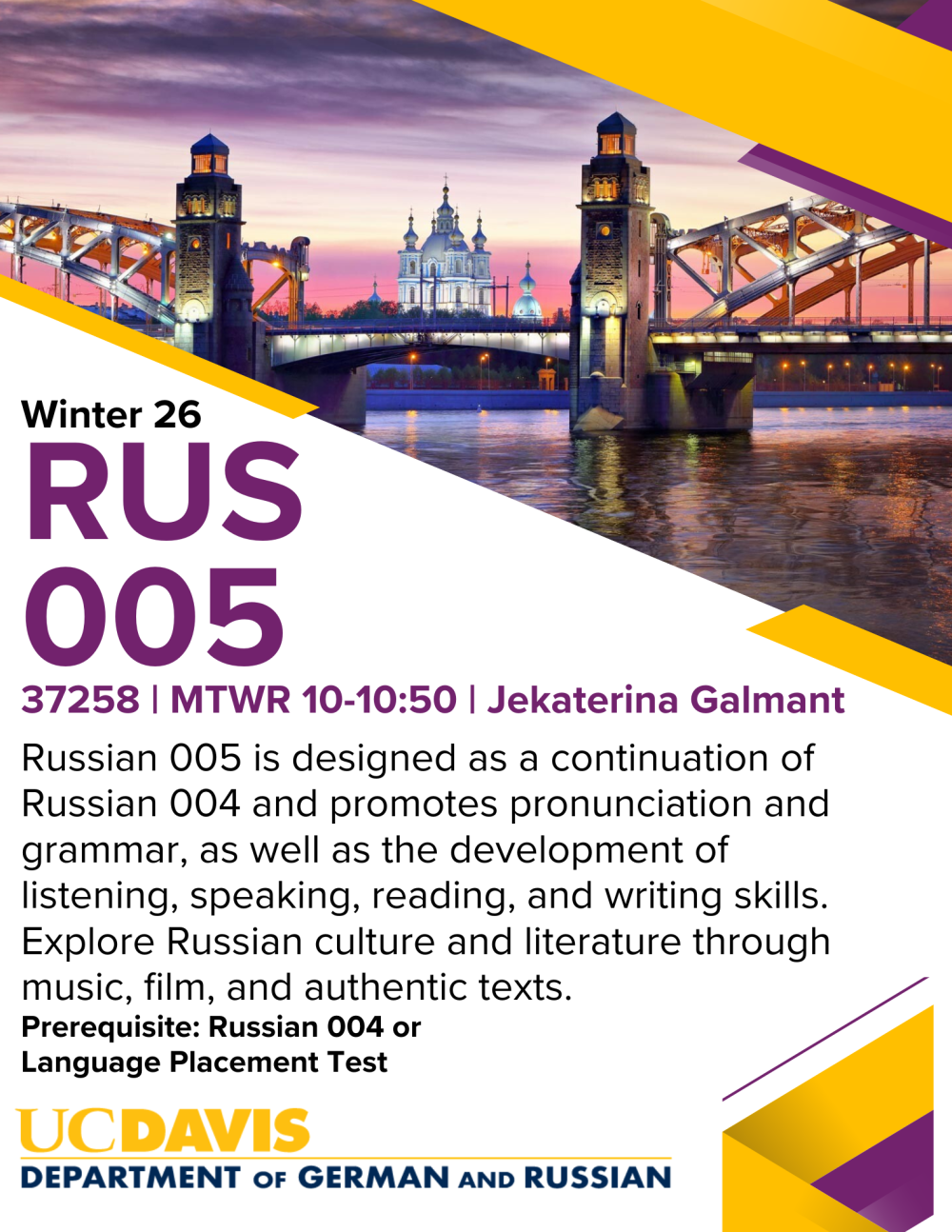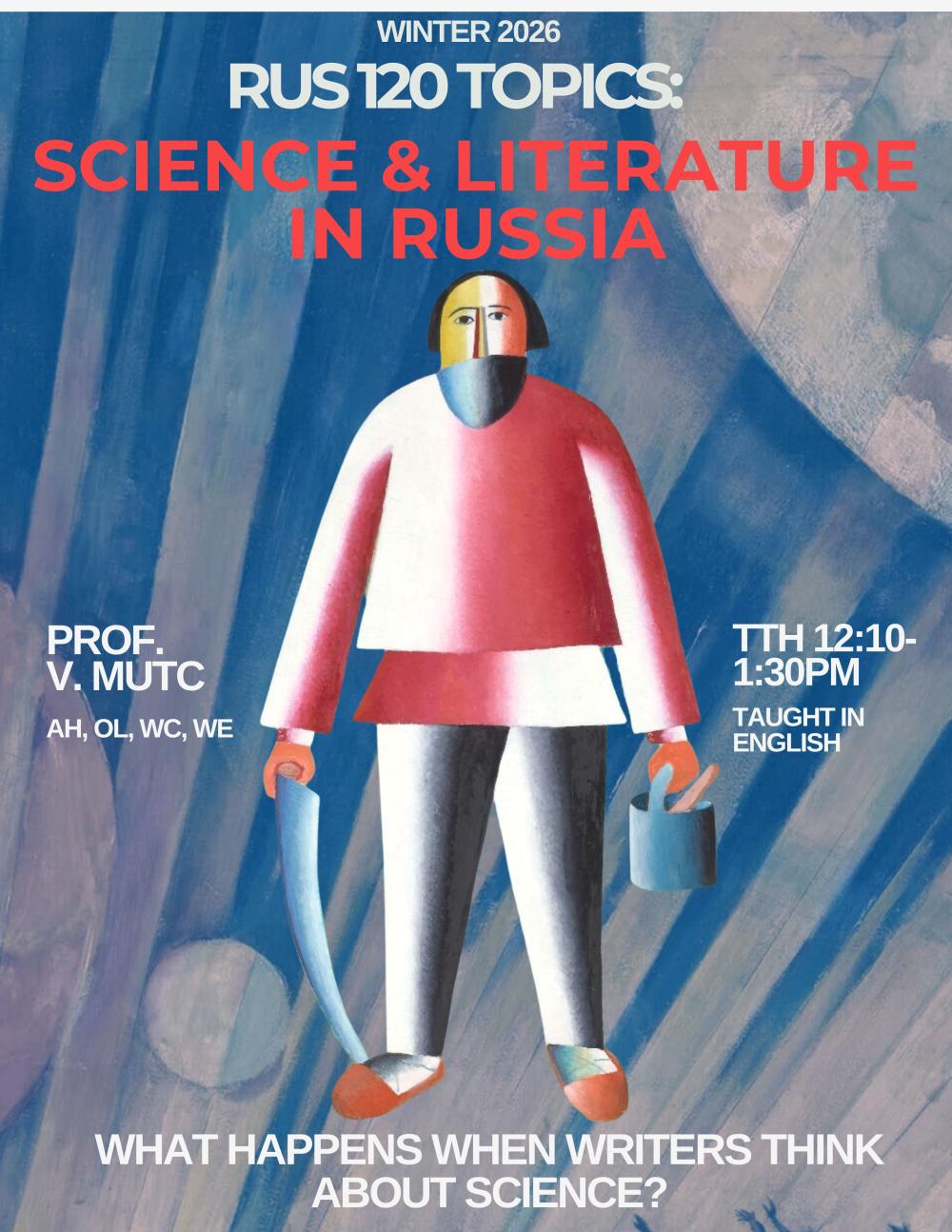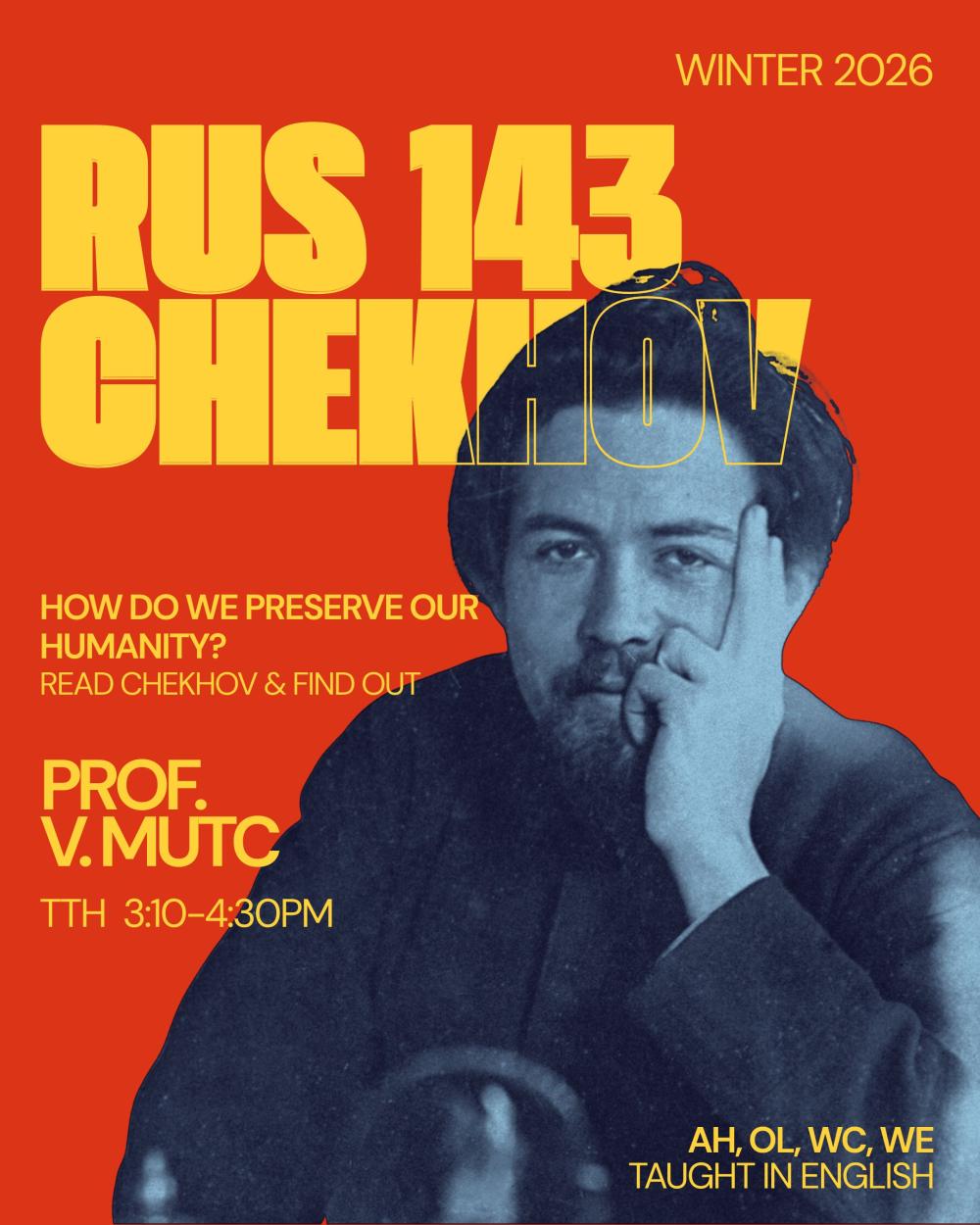Winter Quarter 2026
- For day, time, room, and TA information, see our:
PDF Schedule or Schedule Builder - For all courses not described here, see:
Catalog Descriptions
Expanded Course Descriptions
- RUS 002 Elementary Russian
Liliana Avramenko - Continuation of grammar and language skills developed in RUS 001. Prerequisite: RUS 001. GE: Arts & Humanities (AH); World Cultures (WC).
- RUS 005 Intermediate Russian
Jekaterina Galmant RUS 005 is designed as a continuation of RUS 004 and promotes pronunciation and grammar, as well as the development of listening, speaking, reading, and writing skills. The course aims to expand the oral and written communication skills acquired in earlier classes and to broaden students’ understanding of the cultures of the Russian-speaking world. Grammatical concepts are reviewed and expanded. Students will be exposed to aspects of Russian culture and literature via music, movies, and written texts. Topics include, but are not limited to, daily routine, housing, hobbies, movies and theater, and music. Students will participate in various classroom activities, including small groups and pair work, and oral presentations to give them ample opportunities to practice Russian. Prerequisite: RUS 004. GE: Arts & Humanities (AH); Oral Skills (OL); World Cultures (WC).

- RUS 101B Advanced Russian
Liliana Avramenko - Continuation of RUS 101A. Topics in Russian grammar for the advanced student. Reading and discussion of journalistic texts and classic and contemporary literature. Conversational exercises utilizing literary and colloquial variants of current Russian speech. Prerequisite: RUS 101A or consent of instructor. GE: Arts & Humanities (AH); World Cultures (WC).
- RUS 120 Topics Rus Lit and Culture: Science and Literature in Russia (in English)
Valeria Mutc We often view science and literature as incompatible and even hostile fields. But are they actually as distinct as we think they are? Would it be possible to study science through literature and literature through science? What happens when artists think about science and technology in a country and age that reveres empirical knowledge? This course dives deep into these questions, interrogating how different scientific disciplines were represented in and enriched by Russian and Slavic culture. We will look at various fields of scientific knowledge, such as medicine, engineering, physics, and chemistry, in connection to great works of literature, asking what role Russian, Russophone, and Eastern European writers played in shaping them and, conversely, in what ways science affected these fictional pieces. Taught in English. No prerequisites. GE: Arts & Humanities (AH); Oral Skills (OL); World Cultures (WC); Writing Experience (WE).

- RUS 143 Chekhov (in English)
Valeria Mutc This course explores the literary works of Russia’s renowned writer, Anton Chekhov. Through studying Chekhov’s short stories, novellas, and drama, we will follow the writer’s quest to understand how to stay human in an increasingly dehumanized world. Combining close textual analysis, socioeconomic context, and intellectual history, this course will unfold Chekhov’s reflections on humanity, art, science, and ethics. Taught in English. No prerequisites. GE: Arts & Humanities (AH); Oral Skills (OL); World Cultures (WC); Writing Experience (WE).

